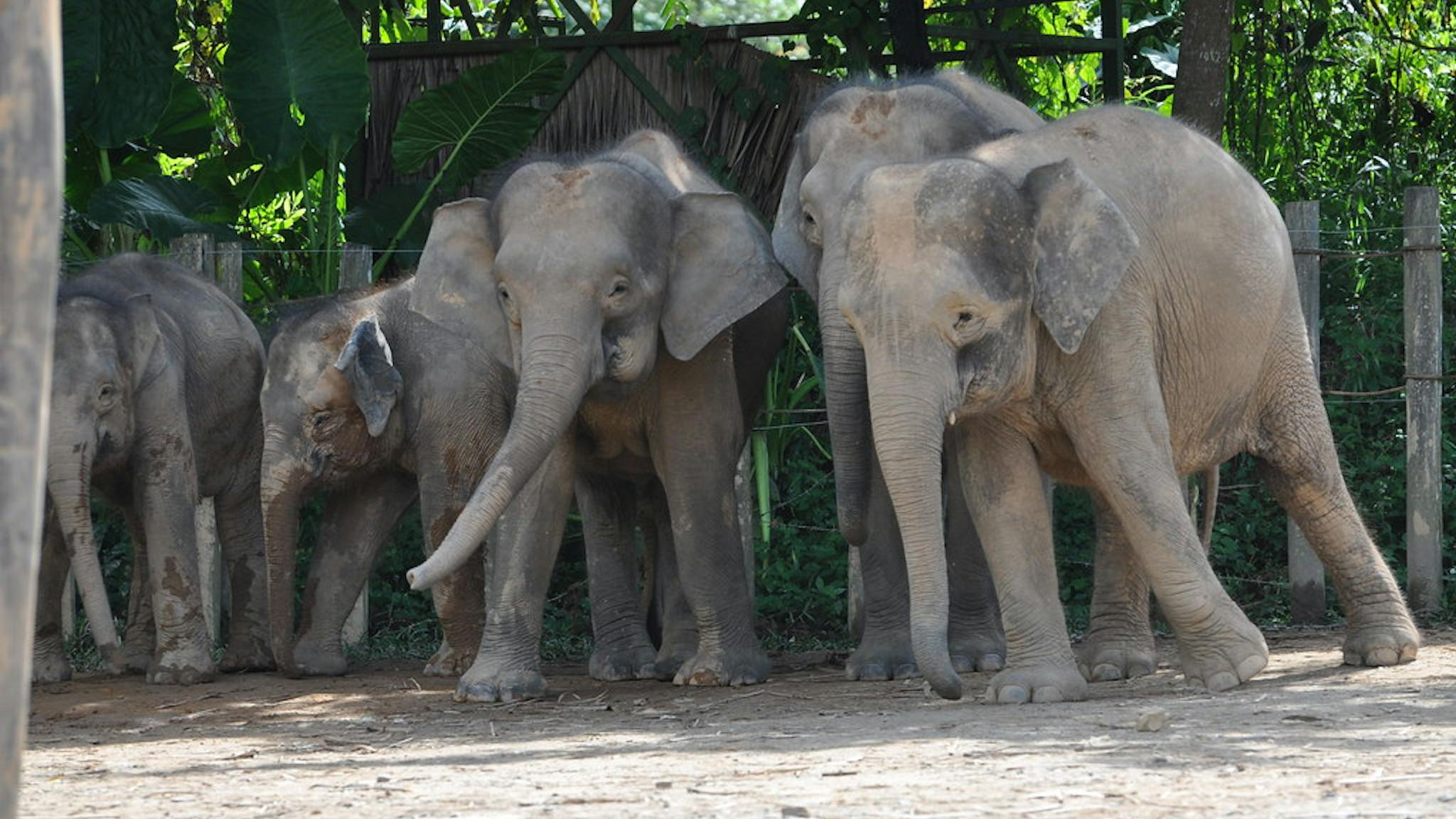Oil palm plantations in the state of Sabah, Malaysian Borneo can lose millions from damaged crops due to elephant raids, while smallholder farmers can lose their livelihoods overnight to an elephant herd.
To continue watching, subscribe to Eco‑Business.
There's something for everyone. We offer a range of subscription plans.
- Access our stories and receive our Insights Weekly newsletter with the free EB Member plan.
- Unlock unlimited access to our content and archive with EB Circle.
- Publish your content with EB Premium.
Elephants may be killed in retaliation, with 25 pygmy elephants found dead in Sabah this year, and over 100 elephants deaths in the last eight years.
As conflict between humans and elephants worsens as demand for palm oil pushes farmers further into elephant habitat, what does the future look like for this endangered species?
Switzerland-based non-profit Earthworm Foundation, formerly known as The Forest Trust, has established a partnership between palm oil farmers and the government for the steps to take when elephants enter plantations.
“
People need to understand that we need to co-exist. There is no way that we can say that this land just belongs to elephants or this land only belongs to people.
Dr Nurzhafarina Othman, director, Project Seratu Aatai
The programme includes educating farmers in Ulu Muanad in Beluran, Sabah, on elephant biology, so they understand that the animals are entering their plantations because their forest homes have been cut down.
“Participants who went on our training course understand that the elephants need a place to live. When they have the knowledge of how to handle the elephants’ presence, they don’t feel so scared,” said Dr Nurzhafarina Othman, director of Project Seratu Aatai, a local non-profit focusing on promoting human-elephant co-existence in Sabah.
A seven-person strong monitoring group, composed of volunteer farmers trained as wildlife wardens, was formed to patrol an area of more than 7,500 hectares.
With help from Sabah Wildlife Department, the monitoring group uses radio collars to detect elephants from up to 5 kilometres away. When the monitoring group receives warning, they are able to track the elephants and chase them away.
Oil palm plantations have helped by setting up electric fences to deter the elephants, but Othman hopes that bigger palm oil companies will take part, as most of the farmers’ plantations are small to mid-sized.
“People need to understand that we need to co-exist. There is no way that we can say that this land just belongs to elephants or this land only belongs to people. We must strive to share,” says Othman.

















